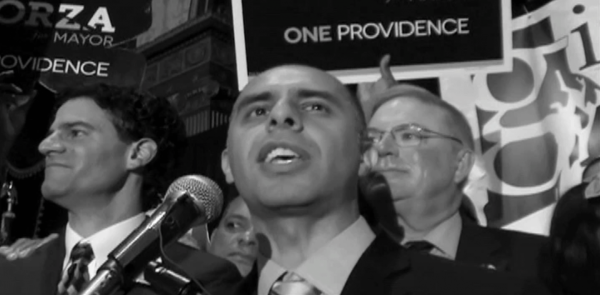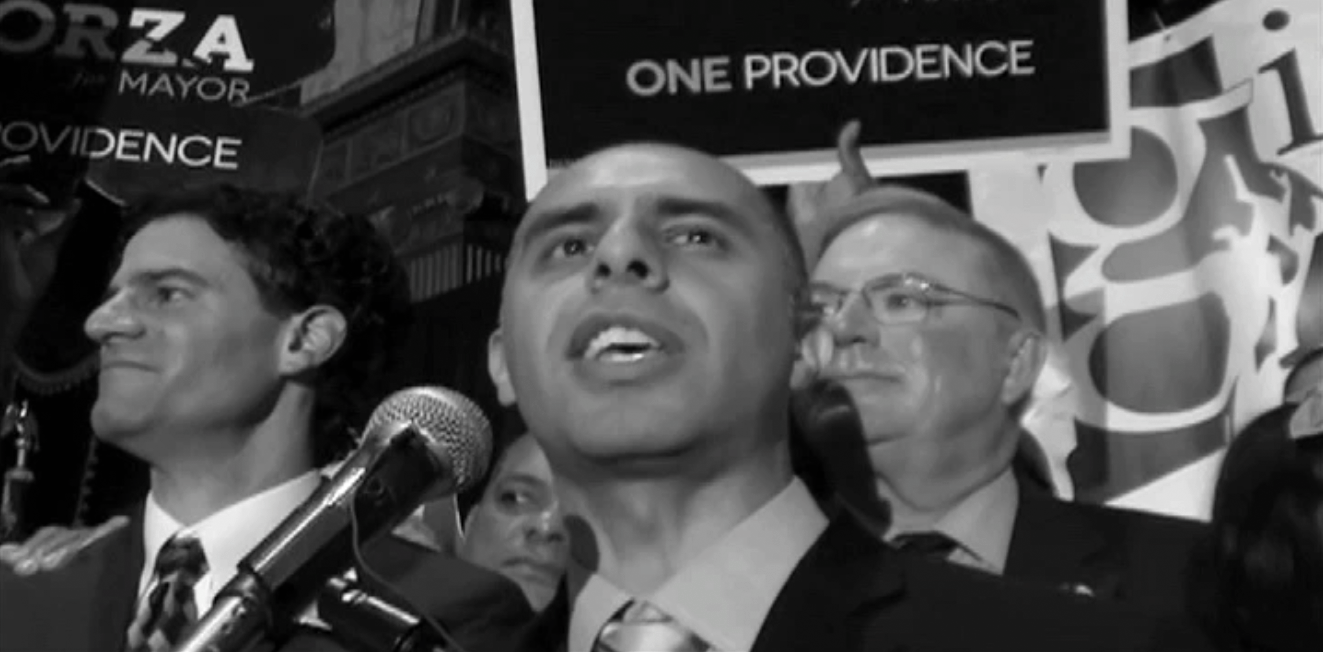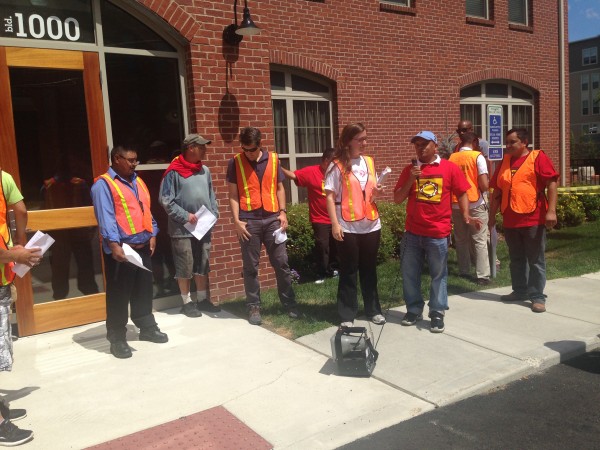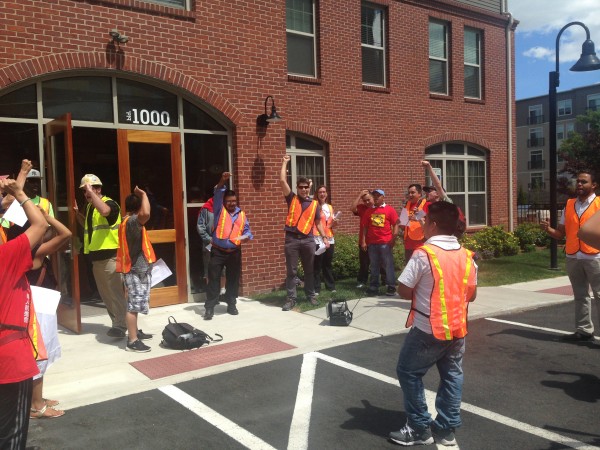 As I watch news of Providence Mayor Jorge Elorza’s administration, I see more and more of what many feared during the campaign: an Elorza–Brett Smiley led administration, beholden to the moneyed, white interests of the East Side, at the expense of the rest of the city. Today in the Providence Journal, there was front-page coverage of a meeting at Nathan Bishop Middle School on the East Side, where residents expressed “alarm” at an alleged wave of home break-ins in their neighborhood.
As I watch news of Providence Mayor Jorge Elorza’s administration, I see more and more of what many feared during the campaign: an Elorza–Brett Smiley led administration, beholden to the moneyed, white interests of the East Side, at the expense of the rest of the city. Today in the Providence Journal, there was front-page coverage of a meeting at Nathan Bishop Middle School on the East Side, where residents expressed “alarm” at an alleged wave of home break-ins in their neighborhood.
Certainly break-ins are never a good thing, on any side of town. But the mayor said “One Providence,” not two.
The swift response from the mayor, police, and media to these mostly white, relatively affluent city dwellers highlights the opposite experience of Southside community organizations, residents, and organizers seeking the mayor’s audience for their issues. At the sounds of alarm raised by those on the East Side, Mayor Elorza rushed to a community meeting and brought along high-ranking police officials. All this despite police statistics (cited in the Projo article) demonstrating a decrease in reported break-ins on the East Side since last year. The Providence Journal followed close behind and gave the meeting front-page coverage! This comes a day after I received an email from the administration, announcing the new “Center for City Services,” based on the pledge that “everyone who lives, works, owns a business, and goes to school in Providence deserves the highest quality city services.” “Everyone,” not just the politically palatable or otherwise privileged.
The Tenant and Homeowner Association (THA), a group of working-class homeowners and renters from across Providence, predominantly people of color, who are organized to prevent foreclosure, evictions, and the abandonment of their neighborhoods, have been raising the “alarm” about the city’s hundreds of abandoned properties for months, and have yet to receive face time with the mayor.
In fact, a formal request for a meeting was met with months of silence, and only after further prodding finally received the answer from a staffer that the mayor was simply “too busy,” to meet on this issue. Yet, these East Side residents, alarmed at break-ins that have not, in fact, increased, receive the mayor’s immediate presence in their neighborhood, along with city resources in the form of eager police commanders. While break-ins appear a bit of a straw man, abandoned properties, by the mayor’s own admission, are a serious problem for the city, though not on the East Side. Hundreds of properties sit empty, inviting arson, blighting neighborhoods, and dragging down property values for those homeowners, predominantly people of color, who have managed to hang on to their homes amidst foreclosures and structural unemployment.
The mayor’s reluctance to meet with a group of affected residents, who have actually been organizing themselves around an issue for years (the last six of which were spent changing state law to protect vulnerable renters from eviction), is unacceptable. Suspicions about his priorities and the sincerity of “One Providence,” are legitimized by his earnest response to East Side residents, who are unorganized and whose “alarm” is rooted in race and class-based fear.
Instead of assuaging the fears of East Siders, perhaps the mayor should prioritize the basic needs of the many residents in the rest of Providence, whose resistance to never-ending poverty, divestment, blight, and disenfranchisement are rooted in real problems, like abandoned properties, to which the mayor himself offered lip service in the pursuit of votes.




 “They owed us money every week and didn’t pay us at all the last two weeks of work,” said Gianni Batres in a statement. Batres worked as a drywaller at the Alta Stone Place apartments. “This isn’t fair for workers. Wood Partners needs to be ultimately responsible for making sure that the workers who are hired by their contractors and subcontractors get paid.”
“They owed us money every week and didn’t pay us at all the last two weeks of work,” said Gianni Batres in a statement. Batres worked as a drywaller at the Alta Stone Place apartments. “This isn’t fair for workers. Wood Partners needs to be ultimately responsible for making sure that the workers who are hired by their contractors and subcontractors get paid.” Gardener added that small subcontractors can easily change names or leave the state. Many builders use contractors and subcontractors that are based out of state to begin with, which means workers would have to travel out of state and deal with out of state agencies to recover their wages. Even if the court or the state decides that the subcontractor owes workers money, it can be hard to recover if the subcontractor moves or has no assets. When workers have tried to bring these labor rights violations to the general contractor, they are told that the general contractor is not responsible because the workers are not direct employees.
Gardener added that small subcontractors can easily change names or leave the state. Many builders use contractors and subcontractors that are based out of state to begin with, which means workers would have to travel out of state and deal with out of state agencies to recover their wages. Even if the court or the state decides that the subcontractor owes workers money, it can be hard to recover if the subcontractor moves or has no assets. When workers have tried to bring these labor rights violations to the general contractor, they are told that the general contractor is not responsible because the workers are not direct employees.

